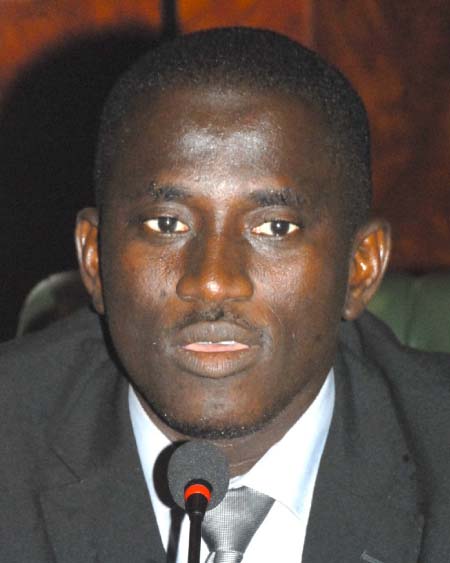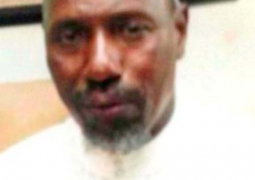
Sabally was also ordered to surrender all his travel documents to the court registrar.
Meanwhile, the surety should make sure that the accused person appears in court at every sitting to answer to the charges against him.
Justice Amadi also said henceforth the trial will be held once every working week, starting from 1 December 2014.
Sabally is facing an 8-count charge ranging from economic crimes, abuse of office, and negligence to giving false information.
Delivering his ruling on Sabaly’s bail application, Justice Amadi said senior defence counsel A.A.B. Gaye filed a motion dated 16 October 2014, in which the accused application to be released on bail was supported by a 33-paragraph affidavit sworn to by the accused person’s wife, Jainaba Sarr.
Counsel added that they are relying on all the 33 paragraphs of the affidavit.
He said defence counsel further submitted, among other things, that in the constitution and the criminal procedure code there is a constitutional presumption in favour of bail.
“I submit that the continued detention of the applicant will erode the constitutional guarantee of presuming innocent until proven guilty. I urge your worship to exercise discretion to allow the application and grant the applicant bail with a reasonable condition,” Justice Amadi quoted from the submission of the defence counsel.
In response, DPP SH Barkhum said the accused was brought before the court on an 8-count charge dated 22 October 2014, which includes economic crimes, abuse of office, negligence and giving false information.
The DPP also submitted, among other things, that economic crime is bailable, but the punishment should be put into consideration.
The applicant may run away if released on bail, the DPP said, adding that they are yet to conclude their investigations and other charges can be brought against him.
Justice Amadi said the constitution gives a right to liberty and states that no person shall be deprived of that liberty, adding that every person charged with a criminal offence shall be presumed innocent until proven guilty.
“Bail is a traditional right to freedom, which is the whole essence of bail,” Justice Amadi said.
Justice Amadi said someone who commits a capital offence is not entitled to bail.
Looking at the nature of the charges against the accused person, they are serious ones.
However, a decision at the end of trial is based on the evidence of the witnesses at the trial.
He agreed with the DPP on the severity of the punishment if convicted, and noted the fact that in the state’s affidavit in opposition, it is stated that the accused has wide power and could influence potential witnesses during the trial.
The accused is no longer holding that position, and he may not be able to get the resources to influence the witnesses, Justice Amadi said.
“The issue now is whether the applicant will surrender himself if granted bail,” said Justice Amadi.
The applicant’s affidavit stated that when he is granted bail, he would neither abscond nor interfere with potential witnesses, he added.
The judge pointed out that this was the first-ever criminal case the accused was charged with.
“I have gone through the affidavit sworn to by the applicant’s wife,” he said.
The fear expressed in the affidavit in opposition was that the applicant may run away if granted bail, but the counsel said the applicant would face the charges against him and would not abscond.
“With all the material before me and in the interest of justice, the objective of bail pending trial is to grant free trial,” he said.
He therefore granted Sabally bail.



